Making judgment calls: Justice Appel visits high school students
By Kate Hayden, khayden@charlescitypress.com
From September to June, the justices on the Iowa Supreme Court deal with the issues that come to them from lower courts.
On Tuesday, Justice Brent Appel turned control of his speaking session over to the Charles City High School students listening in the high school’s library.
Appel presented students with a challenge: Is it better to have a judge engaged in a community, risking bias or relationships when a case arrives? Or is it better to have remote judges who more easily retain independence, but risk being “out of touch”?
The “remote judge” concept seems antithetical considering the Iowa Supreme Court’s travel initiative.
Over the last six years, the court justices have traveled outside Des Moines to bring oral arguments to Iowans in their daily lives, speaking with high school and community college students along the way.
“I think it’s important for members of our court to help educate our kids,” Appel told reporters on Wednesday. “The main goal is to stimulate thinking about the way our government operates.
“I don’t have a particular message that I’m trying to convey,” he said. “I don’t have a viewpoint that I’m trying to get across, but I’m trying to show the way the political branches of government (and) the judicial branch of government interrelate.”
So did students feel like they knew a lot about Iowa’s court system before Wednesday?
“Nope,” senior Hunter Cother said. “It was very eye-opening for me.”
“There were some things that he talked about that we kind of already knew,” senior Kaitlyn Pellymonter said. “Other things … it was stuff you wouldn’t see in a textbook.”
It was also exciting for teachers Sarah Downing, Rob Pittman and Steve McGrew, who led the three classes that heard from Appel in the library.
Downing’s AP Government class was beginning a unit on the federal courts when the school received a call from Iowa court representatives.
“It’s a great opportunity for our students,” Downing said. “By this point in the year, they have a pretty good base of the government. I think they’re prepared to ask some of the harder-hitting questions … They understand a little bit more about the government function, so they can ask questions about morality versus law, Constitutional interpretation, stuff like that.”
During discussion Appel used previous U.S. court cases to illustrate challenges the courts have encountered — without risking comment on current events which may come before the Iowa Supreme Court and ask for Appel’s judgement.
“On the one hand, people look at you like you’re being evasive. Ordinarily you need to explain why you’re not answering the question directly, and once you explain the need to remain impartial about matters that might appear before the court, I think students and adults tend to understand,” Appel said.
Appel’s personal experiences changed senior McKenzie White’s mind when he presented the “social vs. remote judge” challenge to the class.
“That kind of changed my opinion of how judges should be,” White said. “I thought judges should socialize with the community and get to know what public opinion is and how the public feels about certain things and get on their side … After hearing him talk about it, I realize there should be a little more offset to the public so that they don’t feel too influenced by outside opinions, because they’re supposed to be completely unbiased.”
Those conversations were just what Appel and the rest of the justices wanted to see, Appel said.
“I really just want the students to raise questions and explore various options that might be present in the judicial branch or our system of government,” he said.

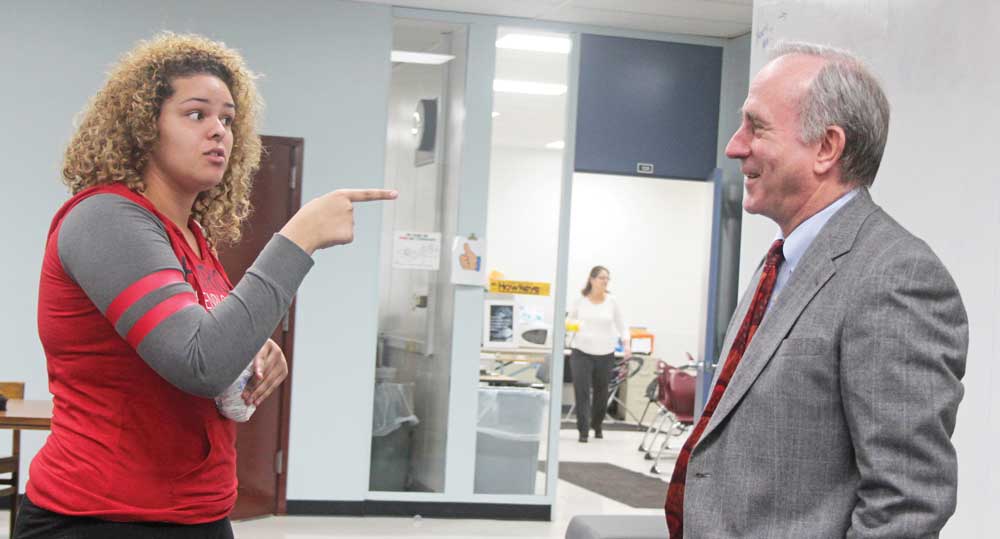
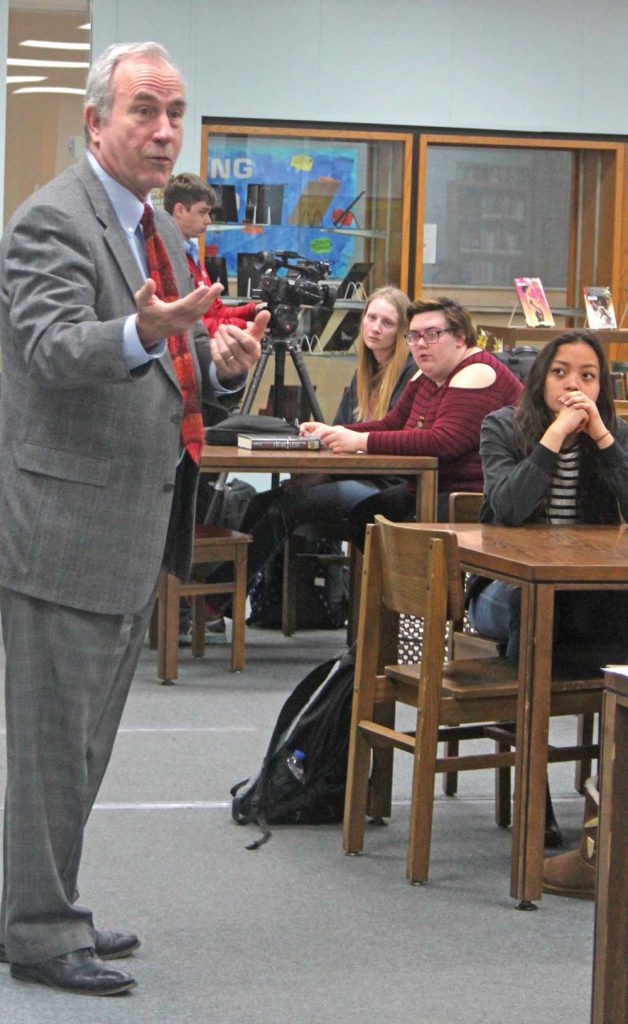
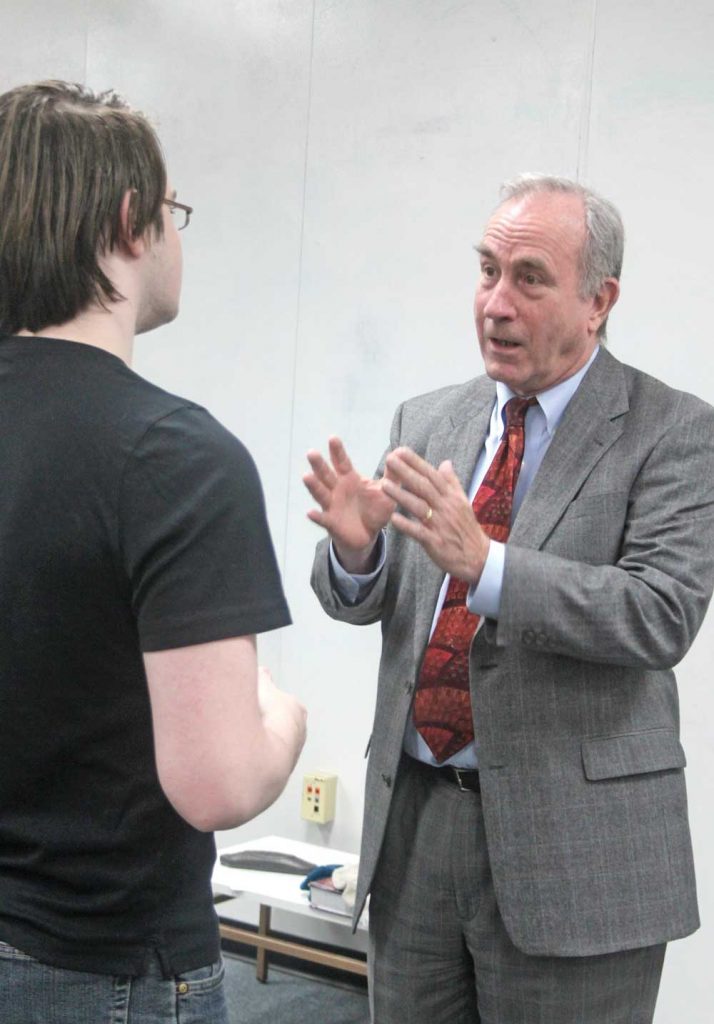
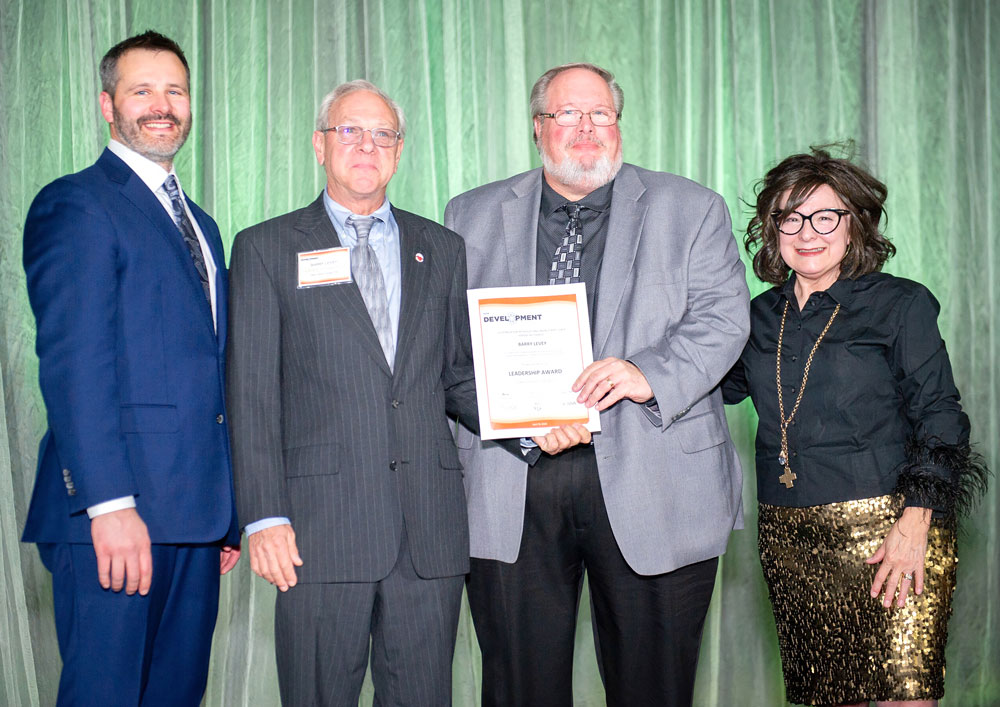


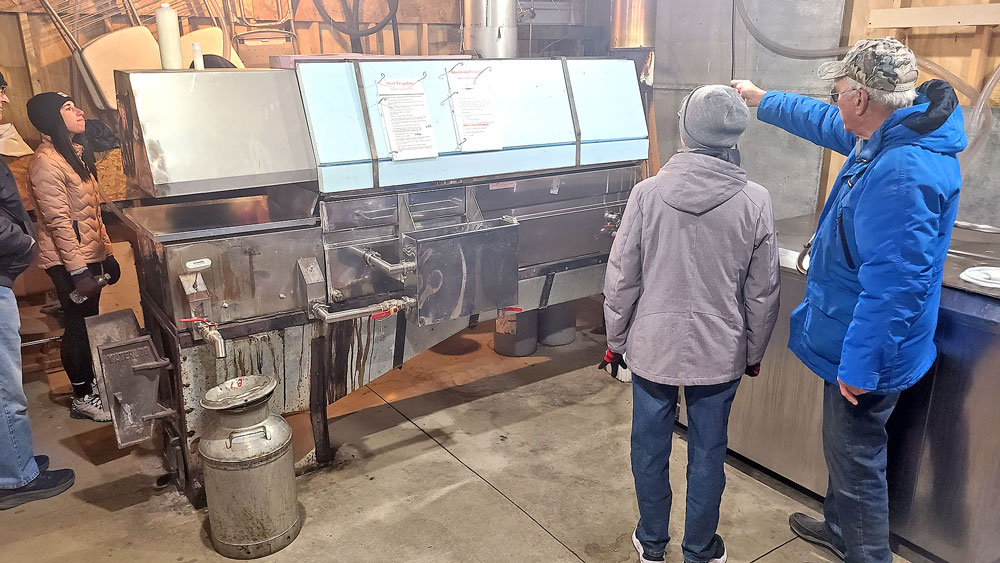

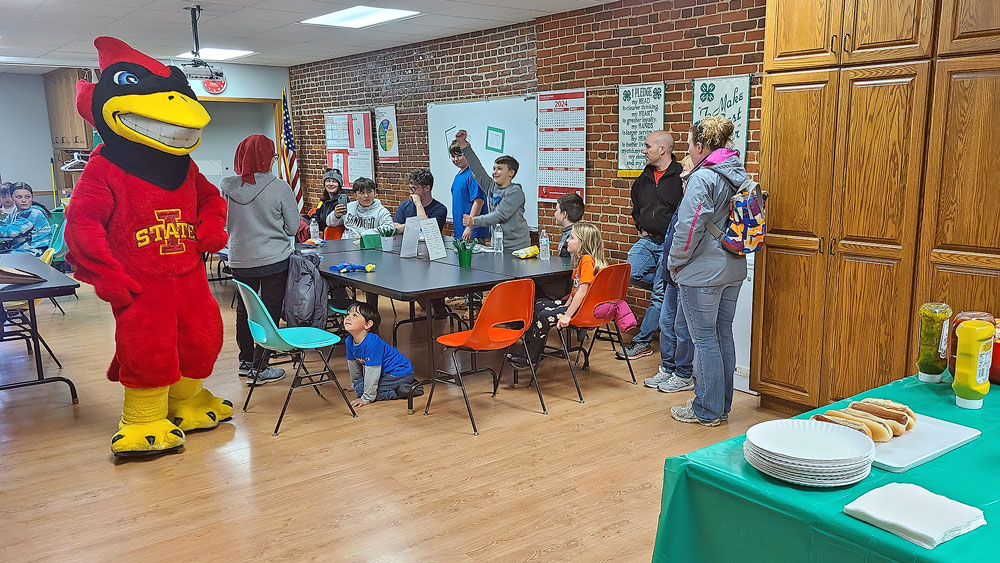


Social Share